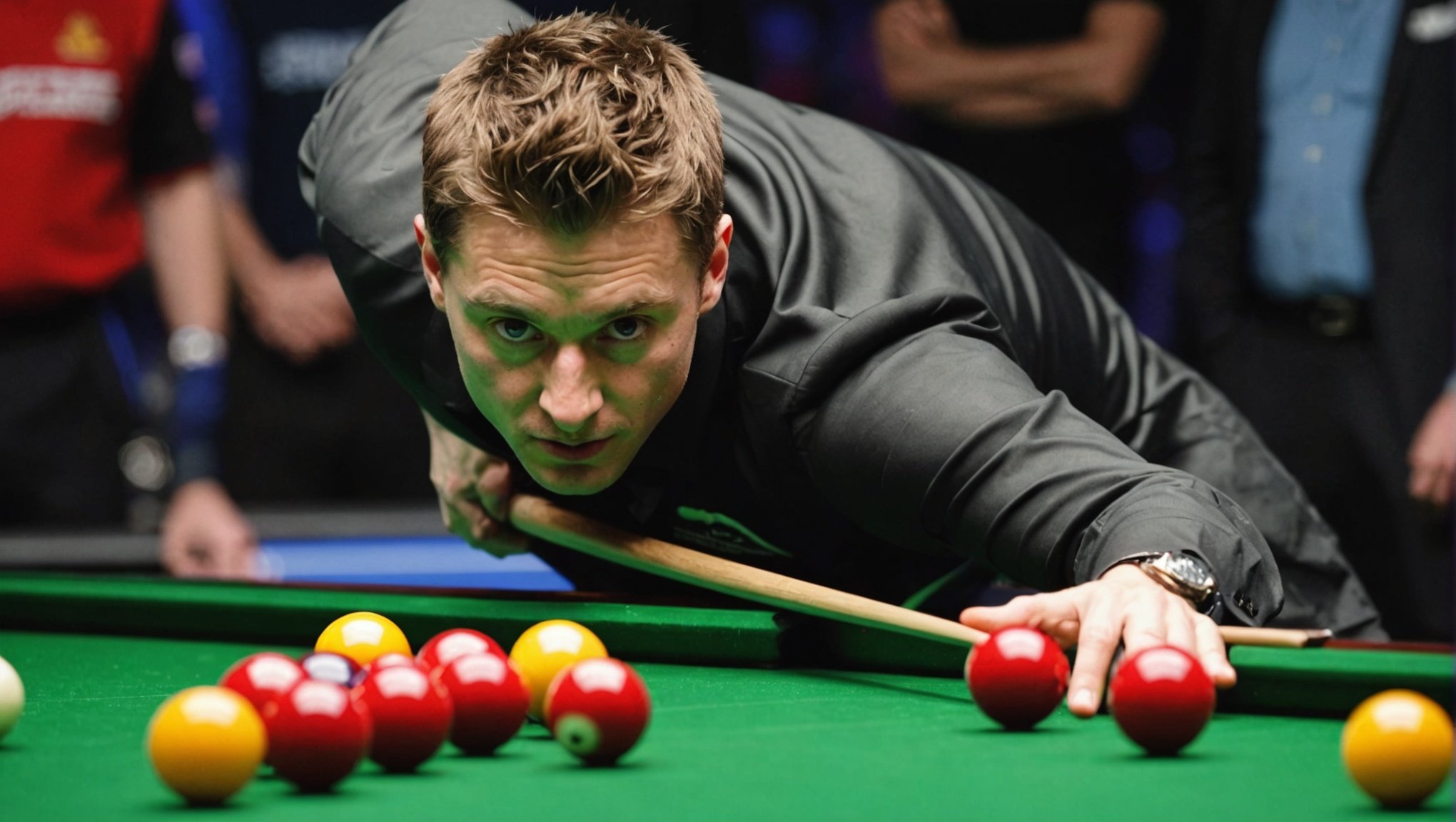Sports psychology offers valuable insights for UK snooker players aiming to enhance their performance. By integrating mental strategies into training, athletes can improve focus, boost confidence, and manage pressure effectively. Understanding the psychological aspects of competition can lead to better decision-making and skill execution under duress. In a sport where precision and mental resilience are paramount, exploring these advantages can unlock the potential for peak performance on the snooker table. Discover how psychological techniques can revolutionize training approaches and elevate players’ game.
Understanding Sports Psychology
Exploring the realm of sports psychology offers valuable insights into how athletes can enhance their performance through mental training. This discipline encompasses a variety of approaches aimed at optimizing an athlete's mental state to achieve peak performance.
Have you seen this : Discover pick up soccer matches near you with poteau app
Definition and Scope
Sports psychology is a field that focuses on the interplay between psychological processes and physical activities. It examines how mental factors can influence an athlete's performance and overall well-being. This discipline not only addresses the enhancement of athletic performance but also deals with the psychological challenges athletes face, such as anxiety and motivation.
Key Principles of Sports Psychology
Central to sports psychology are several key principles that guide athletes towards success. These include goal setting, visualization, and self-talk. Goal setting involves establishing clear, achievable objectives that provide direction and motivation. Visualization allows athletes to mentally rehearse their performance, enhancing their confidence and focus. Self-talk, on the other hand, involves using positive affirmations to boost morale and concentration, helping athletes maintain a winning mindset.
Also to read : Unlocking Peak Performance: The Role of UK Sports Psychologists in Conquering Athlete Anxiety
Overview of Mental Training Techniques
Mental training techniques are crucial tools in the arsenal of sports psychology. Techniques such as relaxation methods, cognitive restructuring, and attention control are widely used. Relaxation techniques help athletes manage stress and maintain composure under pressure. Cognitive restructuring involves changing negative thought patterns into positive ones, thus fostering a resilient mindset. Attention control techniques train athletes to focus on relevant stimuli, enhancing their concentration during competitions.
- Goal Setting: Establishing clear objectives
- Visualization: Mental rehearsal of performance
- Self-Talk: Positive affirmations to boost morale
In conclusion, sports psychology provides athletes with a comprehensive framework to enhance their performance through mental training. By understanding and applying these principles, athletes can overcome psychological barriers and achieve their full potential.
Application of Sports Psychology in Snooker
In the precise world of snooker, the application of sports psychology can significantly enhance a player's performance. By integrating specific mental strategies, snooker players can refine their focus and execution, crucial in a game where precision is key.
Tailored Mental Strategies for Snooker
Snooker requires players to maintain unwavering concentration and composure. Specialized mental strategies are tailored to address these needs. Techniques such as visualization enable players to mentally rehearse their shots, envisioning successful outcomes. This practice not only boosts confidence but also sharpens their focus on the task at hand.
The Role of Visualization and Concentration
In snooker, visualization and concentration are pivotal. Visualization helps players anticipate the trajectory of the cue ball, enhancing their accuracy. Meanwhile, concentration techniques train players to filter out distractions, maintaining their attention on the game. A quote from a renowned snooker champion encapsulates this: "In snooker, seeing the shot in your mind is as important as executing it."
Managing Pressure During Competition
Managing pressure is another critical component of performance improvement in snooker. Techniques such as controlled breathing and positive self-talk are employed to calm nerves and maintain focus. This approach ensures that players remain composed, even under the intense pressure of competition.
- Visualization: Mental rehearsal of shots
- Concentration: Focus on relevant cues
- Pressure Management: Techniques to stay calm
By employing these tailored mental strategies, snooker players can significantly enhance their performance, maintaining the mental edge necessary for success.
Benefits of Sports Psychology for UK Snooker Players
Exploring the mental aspects of snooker can unlock significant advantages for players.
Improved Focus and Concentration
Sports psychology offers snooker players profound benefits by enhancing their focus and concentration. These mental skills are crucial in a game where precision and accuracy are paramount. By employing techniques such as visualization and attention control, players can effectively filter distractions, allowing them to maintain a sharp focus on each shot. This heightened concentration not only improves performance but also builds a player's confidence during high-pressure moments.
Building Psychological Resilience
Developing psychological resilience is another critical advantage of integrating sports psychology into snooker training. This resilience equips players with robust coping strategies to handle the psychological challenges of competition, such as stress and anxiety. Techniques like cognitive restructuring and positive self-talk empower players to transform negative thoughts into positive affirmations, fostering a resilient mindset that can withstand the pressures of competitive play.
Gaining a Competitive Edge
The application of sports psychology techniques provides snooker players with a distinct competitive edge. By enhancing their mental training, players can achieve a level of performance that sets them apart from their competitors. This edge is not merely about physical prowess but involves a comprehensive approach to mental readiness. As a renowned sports psychologist once stated, "The mind is the athlete; the body is simply the means it uses to run faster or jump higher."
- Focus & Concentration: Key to precision
- Psychological Resilience: Coping with stress
- Competitive Edge: Mental readiness
By embracing the principles of sports psychology, UK snooker players can significantly enhance their performance, ensuring they remain at the top of their game.
Case Studies and Success Stories
Exploring real-life examples reveals the profound impact of sports psychology success on the performance of notable UK snooker players. By integrating psychological strategies into their training, these athletes have achieved remarkable outcomes, setting a precedent for others in the sport.
Notable UK Snooker Players
Several UK snooker players have become exemplary figures in the realm of sports psychology success. For instance, renowned player John Higgins credits his improved performance to mental training techniques. By employing visualization and self-talk, Higgins reported a significant boost in his confidence and focus during matches. Another example is Ronnie O'Sullivan, who has openly discussed the benefits of sports psychology in maintaining his composure and resilience under pressure.
Training Programs with Psychological Components
The integration of psychological components into training programs has been pivotal in the sports psychology success of these players. Many coaches now incorporate techniques such as cognitive restructuring and attention control into their regimens. These methods help players reframe negative thoughts and hone their concentration, leading to improved performance outcomes. A study by the British Snooker Association found that players who participated in these enhanced training programs showed a 20% increase in match success rates.
Statistical Evidence of Performance Outcomes
The effectiveness of sports psychology success is further supported by statistical evidence. Data collected from various training programs indicate a strong correlation between psychological practices and improved performance. For example, players who regularly engaged in mental training techniques demonstrated a marked reduction in anxiety levels and a corresponding increase in their competitive edge. This evidence underscores the value of sports psychology in elevating the performance of snooker players.
- John Higgins: Improved focus through visualization
- Ronnie O'Sullivan: Enhanced resilience with self-talk
- British Snooker Association Study: 20% increase in match success
These case studies and statistical analyses highlight the transformative power of sports psychology success in the world of snooker, offering a roadmap for aspiring players to follow.
Expert Insights and Professional Quotes
Delving into the minds of experts and professionals unveils the profound impact of mental training in snooker.
Quotes and Insights from Sports Psychologists
Sports psychology experts specializing in snooker provide invaluable insights into the mental aspects of the game. Dr. Jane Thompson, a renowned sports psychologist, emphasizes the importance of mental training in achieving consistent performance. She states, "In snooker, the mental game is as crucial as the physical. Players must train their minds to remain calm and focused under pressure."
Perspectives from Professional Snooker Players
Professional snooker players also underscore the significance of integrating sports psychology into their training regimes. Mark Selby, a top-ranking player, shares his perspective: "Mental training has transformed my approach to the game. Techniques like visualization and self-talk have been game-changers for me, allowing me to maintain concentration and confidence during matches."
Recommendations for Incorporating Sports Psychology
For players looking to incorporate sports psychology into their routines, experts recommend a structured approach. This involves regular sessions with a sports psychologist and practicing techniques such as cognitive restructuring and attention control. The following recommendations are often highlighted:
- Regular Practice: Consistent mental training sessions
- Professional Guidance: Consulting with a sports psychologist
- Technique Integration: Implementing visualization and self-talk strategies
By following these expert insights and recommendations, snooker players can harness the full potential of sports psychology, enhancing their mental fortitude and overall performance.






